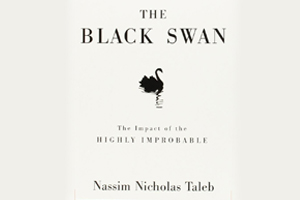Author: Nick Maggiulli
When you think of money, what is the first thing that comes to your mind? For most people, the primary emotion attached to money is scarcity – however much or little you may be earning, you are always on the lookout for building greater wealth because money is our means to purchase things and experiences which have the ability to make us feel more satisfied or fulfilled. It is also the one thing which has the power to offer you the freedom to pursue your dreams and passions, without worrying about putting food on the table and therefore, every individual is keen on saving money and building wealth. However, for many people, this is easier said than done – given the number of financial obligations we take up, from our rent and daily needs to loans, traveling and shopping, making our finite amount of money last is a challenge. And this is where Nick Maggiulli’s Just Keep Buying: Proven Ways to Save Money and Build Your Wealth comes in.
Nick Maggiulli holds the position of Chief Operating Officer and Data Scientist at Ritholtz Wealth Management, where he manages operations throughout the company and offers expertise in business intelligence. Additionally, he runs OfDollarsAndData.com, a blog dedicated to exploring the connection between data and personal finance. His insights have garnered attention from prominent publications such as The Wall Street Journal, CNBC, and The Los Angeles Times. Maggiulli is an alumnus of Stanford University, where he earned a degree in Economics and his expertise in the field is exceptionally visible in the personal finance treatise under consideration.
According to Maggiulli, the optimal strategy for saving revolves around setting aside whatever you are able to spare and if your savings are earmarked for short-term expenses, it is wise to keep them in cash. To bolster your savings further, Maggiulli suggests seeking opportunities to boost your income by leveraging your time, skills, or by selling products. Afterwards, consider investing these savings into assets that generate income. Separately, as someone keen on building wealth, you need to realise that debt, when utilised wisely, can be a valuable financial tool and learn to leverage it optimally. Finally, even as you strive towards attaining your definition of being wealthy, you must understand that this concept is extremely subjective and this is why many individuals never feel truly affluent, even though they may have enough and more wealth to cover their wants and needs.
Key Takeaways
- Top of Form
- Adjust savings based on your income changes for a flexible strategy tailored to financial circumstances.
- Prioritise earning more over extreme expense cuts for effective saving without sacrificing quality of life.
- Money prompts reflection on life's priorities, helping you understand what is truly important to you.
- Balance indulgent expenses with equal investments for disciplined financial planning and wealth growth while allaying the guilt.
- Use debt as a means to achieve liquidity, stabilise cash flow, and manage uncertainties.
- Opt for index funds or ETFs for diversified stock ownership and reducing individual stock risks.
All of us have been in situations where it feels like our financial health is not in our hands – from unexpected expenses to unnecessary spending; building wealth can be a difficult task if you are not prepared to be responsible with money. However, once you adopt a financially prudent lifestyle, building wealth can come easy and make your life that much more satisfying.
Embrace flexible saving strategies
For years, the Dolly Varden trout in Alaska puzzled biologists – despite a short window of abundant food when salmon laid eggs, they thrived year-round. It was only later that the secret was found – researchers discovered their ability to adjust digestive organs based on food availability. When food is abundant, they ramp up metabolism; when scarce, they slow it down. This adaptability being indicated by the Alaskan trout holds a lesson for personal finance, one which can help you overcome your struggles with saving and investing. In simple words, it is advisable to abandon fixed saving rates. While individuals with lower income levels may struggle to save amid essential expenses, wealthier individuals tend to face income variability and therefore, adapting savings to financial circumstances, rather than rigidly adhering to a set percentage, can be extremely beneficial. In prosperous times, saving more provides a buffer against future uncertainties while, conversely, it is crucial to prioritize immediate needs over savings during financial strains. Flexibility in saving habits fosters financial resilience and alleviates guilt associated with missing fixed targets.
Choose the best route
In deciding between saving and investing, you can follow a straightforward approach - compare "expected savings" to "expected investment growth." If anticipated savings outweigh projected investment growth, the focus should lean toward saving; conversely, if the inverse holds true, emphasis should shift to investment decisions. When the disparity between the two is minimal, your attention should be balanced between both avenues. However, as age advances, it is advisable to transition focus from saving to investing. Regarding the question of how much to save, it is better to opt for a flexible approach, as exhibited by the Dolly Varden trout’s adaptive feeding habits.
Prioritize increasing your income over extreme cost cutting
Reflecting on his experience as a crypto investor during a bull market, the author acknowledges the mistake of becoming overly absorbed in managing assets rather than focusing on income growth. This diversion led to missed opportunities for bolstering income, potentially doubling it, had attention been directed towards work instead. Trader and investor Carter Thomas advocates for leaving market assets untouched during both bull and bear markets, emphasizing the importance of income growth – while many fixate on reducing expenses to save more, it is important to consider and understand the limited impact of such efforts, compared to the exponential potential of increasing income. Rather than enduring a path of relentless cost cutting leading to potential misery, it is advisable to prioritize income growth for sustainable financial health. Therefore, recognizing the near limitless potential to increase income, your focus should be on expanding your earning capacity rather than solely on frugality. Further, investing in broad stock market ETFs is one avenue toward building portfolio income over time, as this contributes to long-term financial stability and fulfillment.
Understand life's priorities
The ubiquity of financial advice urging stringent saving habits has created a culture of perpetual money-related anxiety, leading to stress that often outweighs the benefits of savings, as indicated by a Gallup poll. Amid the pressure to balance responsible saving with maintaining quality of life, the real challenge lies in discerning personal priorities. In this scenario, rather than fixating solely on budgeting decisions, it is crucial to align spending with what truly matters to us, a complex and daunting task. Drawing from Daniel Pink's book "Drive," you should focus on autonomy, mastery, and purpose as fundamental drivers of long-term satisfaction, and therefore ensure that every expenditure, no matter how small, contributes to overall wellbeing when directed towards fulfilling these core needs. Instead of succumbing to financial fret, trust in your personal judgment, strive for the best outcomes, and remain steadfast in investing in endeavours that resonate with your values and aspirations.
Assess optimal debt & rent options
As financially prudent individuals, we have been taught about the insidious nature of debt but it is important to realise that debt is not inherently negative – it can offer benefits such as enhanced liquidity, stabilized cash flow, and risk reduction, particularly when the return on investment exceeds borrowing costs, as seen with education, business, and mortgage loans. However, caution is necessary, as borrowing entails risk, especially when the potential return is marginal compared to borrowing costs. Ultimately, the suitability of debt hinges on its specific application within a financial context. Secondly, one of our major financial goals in life usually revolves around homeownership but before entering such a massive commitment, understand that the timing is critical. It is prudent to not rush into buying a house but rather to wait until certain conditions are met: intending to stay in the location for at least a decade, having stability in personal and professional life, and ensuring affordability, including a 20% down payment and a debt-to-income ratio below 43%.
Approach investing wisely
When it comes to investing, individual stocks may seem enticing for wealth creation but it is important to be cautious against their allure due to their inherent volatility and unpredictable nature. Instead, it is advisable to opt for a diversified approach by investing in index funds or ETFs to gain exposure to a broad range of stocks. Further, you should follow a strategic approach to buying and selling investments – sell your assets only when necessary, such as for rebalancing or meeting financial needs, and adopt a patient mindset by selling slowly to capitalize on the long-term upward trajectory of markets. Additionally, avoid attempting to time the market by waiting for dips to invest, as it is nearly impossible to accurately predict market bottoms. Instead, follow the concept of investing regularly and consistently, in line with the philosophy of "just keep buying" to maximize the benefits of compound growth over time.
Arrive at the ideal retirement age
Now that you have begun your journey towards building wealth, when can you retire and start enjoying the fruits of your labour? Determining the ideal retirement age involves various considerations, with one popular method being William Bengen's 4 percent rule, which suggests saving 25 times one's anticipated annual expenses for the first year of retirement. However, there is a potential flaw in this approach –retirees often experience a decline in spending over time rather than maintaining a consistent level of expenses. Therefore, retirement planning is not merely a financial calculation but also a lifestyle decision, prompting us to consider not just "when" to retire, but "what" we are retiring to and this shift in perspective underscores the importance of envisioning our post-retirement lifestyle and activities as a crucial aspect of retirement planning.
While there are many ways to get rich, these are a few aspects which have stood their practitioners in good stead and given their easily adoptable nature, they have the ability to augment your wealth building journey in an optimal manner.
The key to optimally managing your savings and investments, to meet your needs today and in the future is ‘flexibility’. As life’s circumstances change, your approach to saving and investing needs to be flexible enough to respond to changing circumstances. In that regard, mutual funds act as an ideal vehicle for giving you the flexibility that you require. Mutual funds offer a diverse range of products that are spread across asset classes, timeframes, risk profile, and return potential. Further, they also offer flexibility in the way you invest ranging from lumpsum investments and Systematic Investment Plans (SIPs) to Systematic Transfer Plans (STPs) and Systematic Withdrawal Plans (SWPs). As a result, mutual funds help you in your financial planning journey and give you the flexibility that you need at varying points of your journey.
An investor education initiative by Edelweiss Mutual Fund.
All Mutual Fund Investors have to go through a onetime KYC process. Investor should deal only with Registered Mutual Fund (RMF). For more info on KYC, RMF and procedure to lodge/redress any complaints – please visit on https://www.edelweissmf.com/kyc-norms
MUTUAL FUND INVESTMENTS ARE SUBJECT TO MARKET RISKS, READ ALL SCHEME RELATED DOCUMENTS CAREFULLY.
Trending Books
MUTUAL FUND INVESTMENTS ARE SUBJECT TO MARKET RISKS, READ ALL SCHEME RELATED DOCUMENTS CAREFULLY.













